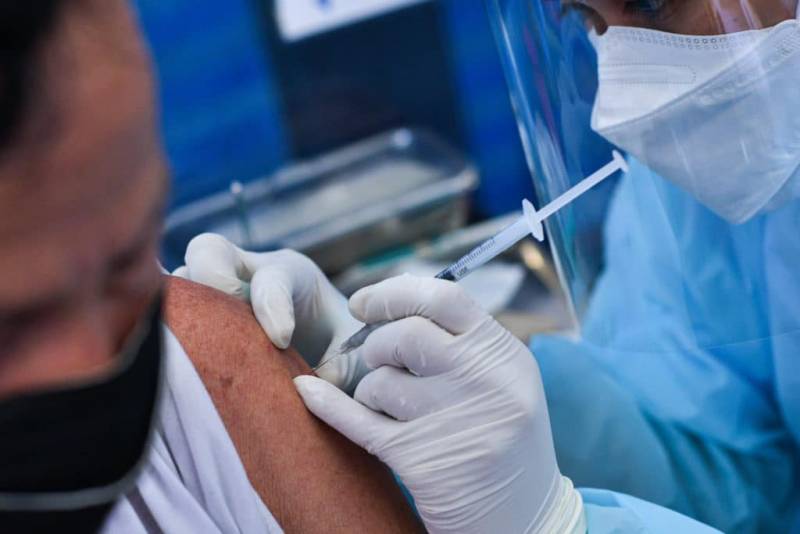A previous Covid infection provided more “durable” protection against infection with the omicron variant than two or three doses of Pfizer or Moderna’s vaccines—but protection was strongest after both vaccination and an earlier infection, according to a study published in the New England Journal of Medicine on Wednesday, underscoring the benefits of vaccination for everyone amid a new surge of cases across the country.
KEY FACTS
A previous Covid infection roughly halved the risk of symptomatic reinfection with omicron, according to the peer reviewed study, which analyzed national health data covering the entire population of Qatar (2.9 million people) between December 2021 and February 2022.
The protection against reinfection was “moderate and durable,” the researchers said, and roughly the same for BA.1 and BA.2 omicron subvariants.
Protection after vaccination faded “rapidly,” the researchers said, and was “negligible” after primary vaccination (two doses of Pfizer or Moderna’s mRNA vaccine) and around 60% after boosting, though the researchers noted that most of the people studied would have had their second dose more than six months ago and their third within the last 45 days.
Hybrid immunity after both vaccination and infection offered the best protection against reinfection, the researchers found, at roughly 50% after primary vaccination and nearly 80% after boosting.
The findings underscore the “benefit of vaccination,” the researchers said, even for those with a previous infection.
While protection against infection with omicron varied significantly, the researchers stressed that previous infection, vaccination and hybrid immunity all conveyed a similarly high degree of protection—around 70%—against serious or fatal illness.
KEY BACKGROUND
The finding is in line with a growing trove of research illuminating the strong protective benefits that come after both vaccination and infection. It highlights the benefits of getting a shot even if you have already had Covid-19. It also underscores the transient nature of some aspects of vaccine-derived protection, which has become particularly noticeable as the highly infectious omicron variant surged around the globe regardless of vaccine coverage. Experts do not fully understand why natural infection provides more durable immunity and it’s possible this varies depending on the variant a person is infected with. This study would have also covered people infected with variants that were prevalent before the omicron wave hit Qatar. Scientists and public health officials are now trying to understand how to reproduce this more durable natural immunity as they prepare the next generation of vaccines for anticipated booster campaigns in the fall and face a new wave of omicronsubvariants—BA.4 and BA.5—that are gaining ground in the U.S. and Europe. Evidence suggests that, unlike earlier variants, infection with omicron may not provide much protection against subsequent infection with omicron.
SURPRISING FACT
The researchers noted that the degree of protection from hybrid immunity after boosting appeared to be two separate layers, as if protection from infection and vaccination acted independently rather than synergistically or through a similar mechanism as might be expected. This was also observed among people who had been infected before and vaccinated, but not boosted, who had a similar level of protection to people who had just had a past infection (suggesting the protection from primary vaccination had faded over time). The “striking” finding “needs to be further investigated” to better understand how the two forms of immunity interact, the researchers added.




